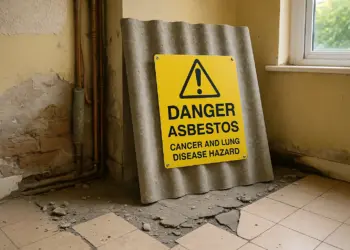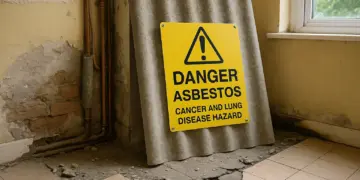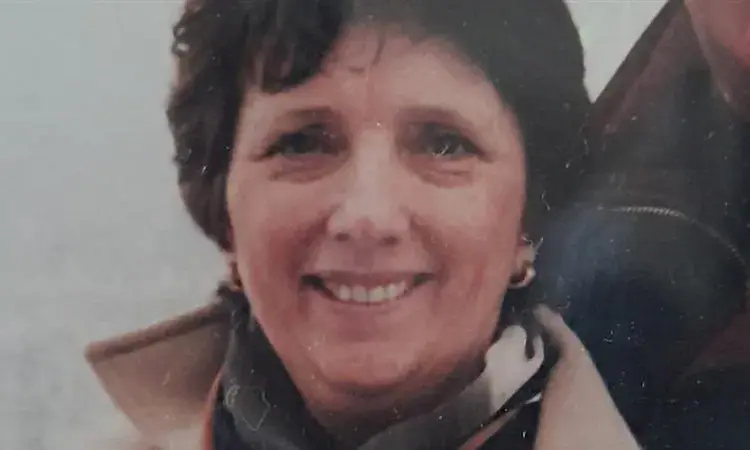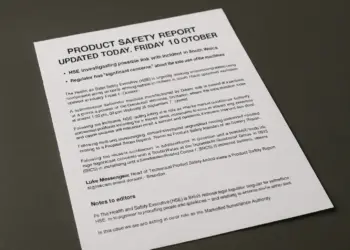Story Highlight
– Iris Scott, 73, died at Crystal Centre mental ward.
– Family reported bullying and threats from staff members.
– Concerns about her care plan were dismissed by staff.
– Mrs. Scott attempted suicide prior to her death.
– Families demand accountability and adherence to recommendations.
Full Story
A recent public inquiry has highlighted serious allegations surrounding the treatment of a woman who tragically took her own life while under care at a mental health facility. Iris Scott, 73, died on 1 March 2014 in the bathroom of the Crystal Centre in Chelmsford, which is managed by the Essex Partnership University NHS Foundation Trust (EPUT). Her family has raised alarming concerns about the conduct of staff and the overall safety of patients at the facility.
The inquiry, known as the Lampard Inquiry, is investigating over 2,000 fatalities in NHS inpatient units across Essex from the year 2000 to 2023. During the proceedings, Ms. Scott’s children expressed their distress and worries regarding their mother’s treatment during her time at the centre. They voiced that they had “grave safety concerns” about how she was cared for, as they recounted troubling incidents involving staff behaviour.
According to the family, Ms. Scott originally admitted herself for a short stay of three weeks in August 2013 due to severe anxiety. However, her mental health reportedly deteriorated during her six months in hospital. They described her experiences as characterised by a lack of appropriate care and management, which they believe significantly contributed to her untimely death.
Craig Scott, one of her sons, asserted that there had been a troubling absence of accountability from the staff regarding the care provided. Adding to the allegations, his sister Dawn Johnson mentioned that upon expressing her concerns about their mother’s thoughts of self-harm in late 2013, the ward manager dismissively attributed her worries to the natural behaviour of a “paranoid daughter.” “She just said I was being a paranoid daughter and nothing was going to happen on that ward,” Ms. Johnson relayed to the inquiry meeting at Arundel House in London.
The inquiry also heard how persistent issues prompted Ms. Johnson and her late mother to document their interactions with staff, which they believed illustrated her mother’s growing fear and distress within the ward environment.
The situation escalated when, on 14 January 2014, Ms. Scott attempted to take her own life, leaving her with significant bruising. When her family inquired about her condition, they were informed that she had simply fallen. However, Ms. Johnson asserted that her mother had confided in her about her suicide attempt, but staff dismissed this as mere attention-seeking behaviour. This incident raised further alarm in the family, particularly when they learned of her ongoing observations being intensified without explanation.
Just two days after the attempt, Ms. Johnson discovered her mother attempting to fashion a ligature in her room. Despite being monitored more closely and after a thorough search revealed items suitable for such actions, concerns continued to mount about the efficacy of the staff’s vigilance. Incredibly, Ms. Scott was reportedly told by the ward manager that she had “overstepped boundaries” following her suicide attempt, an assertion that caused great distress to her family.
Moreover, Ms. Johnson recounted that staff had allegedly coerced her mother into altering her statements about the events of that day, saying, “Mum said she felt pressure to change her story. She was frightened.” The level of observation for her mother was subsequently reduced in late February, leading up to Ms. Scott’s death shortly thereafter.
Reflecting on what could have been done differently regarding her mother’s treatment, Ms. Johnson asserted that “everything” should have been handled in a far more competent manner. She expressed hope that recommendations for changes from the inquiry would be rigorously enforced to prevent future tragedies, adding, “Had they [ligature points] been removed after mum’s death, maybe people who died the following year might still be here.”
Paul Scott, chief executive of EPUT, expressed condolences to Ms. Scott’s family, acknowledging the profound loss faced by those affected by the inquiry. He reiterated a commitment towards enhancing care standards across mental health services, stating, “All of us across healthcare have a responsibility to work together to improve care and treatment for all and to build on the improvements that have already been made over the last 24 years.”
The inquiry continues to unfold as more families come forward with their stories, reflecting on the critical need for change within mental health services in the region.























This is tragic and unacceptable. Mental health services must protect patients at their most vulnerable. Families raising concerns need to be heard and acted on promptly. Where staff behaviour or care shortfalls are identified there must be clear accountability, learning and changes to practice to prevent future harm. An inquiry that leads to concrete improvements in staffing, training, oversight and support for patients and relatives is essential.
This is deeply troubling. Mental health wards must be places of safety where concerns from families and patients are taken seriously and acted on promptly. Allegations of staff bullying and dismissed warnings point to failures in culture, supervision and training that can have fatal consequences. The inquiry should identify where care standards and safeguarding broke down, hold organisations to account and ensure clear, enforceable changes are made to staffing, incident reporting and patient support. Families deserve transparent answers and meaningful reforms so that similar tragedies are prevented.
This is heartbreaking. Families must be heard and seriously believed when they raise concerns. Mental health wards need robust supervision, timely review of risks and clear staff accountability. Lessons must be learned from tragedies like this so care is safer, compassionate and consistently monitored.
This is heartbreaking and unacceptable. Every patient deserves dignified compassionate care and timely, appropriate responses to safeguarding concerns. If staff failed to take seriously clear warnings about risk and allowed bullying or poor treatment to continue the service has failed Iris and her family. The inquiry must lead to clear accountability, independent reviews of ward culture and staffing, and rapid changes to ensure safer supervision, effective risk assessment and genuine family involvement so no one else suffers like this.